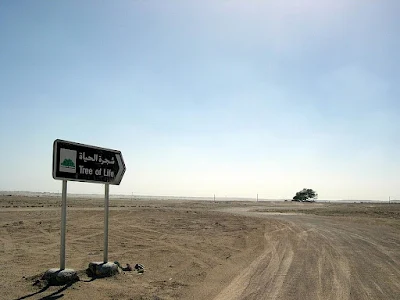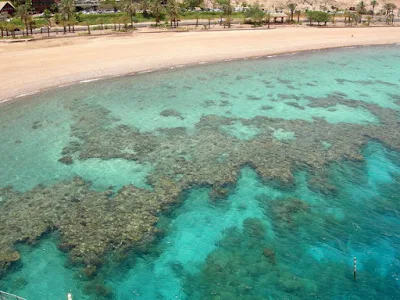40 Interesting Facts About Bahrain
- Bahrain is a small island country on the southwestern coast of the Persian Gulf. It is the third smallest country in Asia after the Maldives and Singapore.
- Bahrain consists of over 30 natural and artificial islands. The country has planned to build five new luxury artificial islands that can increase its landmass by 60%. However, it can devastate marine life and create several environmental problems. (Source)
- The largest island in this Gulf country is Bahrain Island. It contains nearly 85% of the total land area of Bahrain.
- Saudi Arabia and Qatar are the nearest countries to Bahrain. The 15-mile-long King Fahd Causeway, opened in 1986, links Bahrain to Saudi Arabia.
- Bahrain was the seat of the ancient Dilmun civilization nearly 5,000 years ago and acted as a trade route between the Indus Valley and Mesopotamia. It declined around 2000 BC due to cutting off trade from India.
- Bahrain came under Muslim rule in the 7th Century, and most of its inhabitants converted to Islam. Later, it remained under the control of various Arab dynasties.
- Bahrain was a stronghold of Qarmatians, an infamous Ismaili Shia movement, during the 10th Century. In 1930, Qarmatians sacked Makkah and took Black Stone from Kaaba to Bahrain for ransom.
- There is a mesquite tree, known as the Tree of Life (Shajarat-al-Hayat), on a barren desert in Bahrain for more than 400 years. Scientists are clueless about the reason for the existence of this tree in the absence of any water source. Jebel Dukhan, the highest point in Bahrain, is only a mile away from this mysterious tree.

A mysterious tree in Bahrain is standing without water - The Portuguese controlled this area from 1521 to 1602. Then, Persians took over Bahrain in 1602 and ruled there until 1783.
- The current rulers of Bahrain, the Sunni Al-Khalifa family, took over the country in 1783 and have been ruling since then.
- Qatar was part of Bahrain in 1783. However, the Ottomans separated Qatar after capturing the Arabian Peninsula in 1870. Therefore, relations between Bahrain and Qatar remained strained. Qatar also claimed possession of the Hawar Islands of Bahrain after its independence in 1971. However, the International Court of Justice (ICJ) solved this issue in 2001 with a verdict favoring Bahrain.
- The Al Khalifah family signed several treaties with the British after the 1830s, making Bahrain a British protectorate. Bahrain became an independent country in 1971.
- Bahrain established the Municipality of Bahrain in 1919. It was the first municipality service in the Arabian world.
- Bahrain became the first place in the region with proven oil reserves after discovering oil in 1932. However, petroleum reserves in Bahrain are limited and can be exhausted earlier than other regional countries. Therefore, it has the most diversified economy in the GCC but still depends on hydrocarbon to fulfill over 60% of the country’s total revenues.
- Bahrain founded its public education system in 1932, which makes it the oldest in the Arabian Peninsula. Public education is free and mandatory for all children, from primary to intermediate levels. Bahrain has the highest female literacy rate in the Gulf region.
- Bahrain was the first country in the Arabian Peninsula to abolish slavery. This Gulf monarchy prohibited the slave trade in 1937.
- Prince Khalifa bin Salman al-Khalifa, a member of the Bahraini royal family, remained prime minister of Bahrain from its independence in 1971 until he died in 2020. He was the longest-serving prime minister in the world, ruling for almost five decades.
- Bahrain joined the Gulf Cooperation Council (GCC) in 1981. The country foiled a coup attempt backed by Iran the same year. The plotters included Bahraini nationals and citizens of neighboring countries.
- Bahrain became a constitutional monarchy in 2002 after a referendum in 2001. It followed the country’s first municipal and parliamentary elections after decades in 2002.
- So far, only four women have won the presidency of the UN General Assembly. Haya Rashid Al Khalifa of Bahrain is one of them who became the third female PGA (President General Assembly) in 2006.
- In 2007, the Bahrain World Trade Center (BWTC) became the first commercial development to include large-scale wind turbines in its structure. The energy produced by these wind turbines can provide light in 300 homes for a year. (Source)
- Bahrain appointed Houda Nanoo as an ambassador to the USA from 2008 to 2013. She was the first Jewish ambassador from an Arab country. The Jewish population of Bahrain is less than 50.
- Bahrain faced an uprising in 2011 from its majority Shia population as part of the Arab Spring. The government crushed these violent protests with military assistance from Saudi Arabia and the UAE.
- In 2012, experts placed the first ever 3-D printed coral reefs off the coast of Bahrain. These non-toxic and pH-neutral reefs are more attractive to marine creatures than ordinary artificial coral reefs. (Source)

Bahrain hosts the first ever 3-D printed coral reefs - Dive Bahrain, opened in 2019 in the northern part of the country, is the largest underwater theme park. A sunken Boeing 747 plane and an artificial reef are its striking features. (Source)
- Bahrain is one of the four Arab countries that established diplomatic relations with Israel under the Abraham Accords. Bahrain signed the agreement alongside the UAE on September 15, 2020.
- Bahrain is the most water-stressed country in the world. It is among very few countries where the water stress level is over 80%. (Source)
- Hawar Island in Bahrain contains the second-largest aggregation of dugongs, large marine mammals, after Australia. Scientists have recorded groups of around 700 dugongs around this island. (Source)
- Bahrain is the third-most densely populated country in the world after Monaco and Singapore. Nearly 35% of its population resides in two major cities: Manama and Al-Muharraq.
- The Bahraini Dinar (BHD) is the world’s second-highest-valued currency after the Kuwaiti Dinar (KWD). The diverse economy of Bahrain depends on oil, manufacturing, and financial services.
- There are three UNESCO World Heritage sites in Bahrain. These cultural sites provide evidence of the striking past of the country. Two of these sites (Dilmun Burial Mounds and Qal’al Bahrain) are related to the Early Dilmun civilization in Bahrain. The third site depicts the dominance of the pearl trade in Bahrain from the 2nd Century to the 1930s before the development of cultured pearls by Japan.
- All small islands of Bahrain are rocky and low-lying. However, the central region of Bahrain Island is hilly and contains Al-Dukhan Hill, the country’s highest point at 440 feet above sea level.
- Summer in Bahrain is hot and humid, while the winter months are pleasant and receive some rainfall. The sunshine is abundant throughout the year.
- Like several other oil-rich countries in the Middle East, Bahrain also has one of the highest CO2 emissions per capita. It is due to large hydrocarbon production and its relatively low-density of population.
- The headquarters of the U.S. Naval Forces Central Command (NAVCENT) is in Bahrain. The country also hosts a small military force of the UK.
- Bahrain is the only country in the Arabian Peninsula where there is no legal punishment for homosexuality. This Muslim-majority country decriminalized colonial-era laws against same-sex relationships in 1976.
- The main exports of Bahrain are aluminum products, oil, and iron ore. This Middle Eastern country is the largest exporter of aluminum wire and the biggest importer of pitch coke. (Source)
- Around 46% of the Bahraini population consists of Bahraini Arabs, while nearly 45% are Asians of other ethnicities. About 60% of the workforce comes from foreign countries such as India, Pakistan, Philippines, etc.
- Nearly 70% of the Bahraini population follows Islam. It is one of the four countries (besides Iran, Iraq, and Azerbaijan) where the largest religion is Shia Islam. The majority of the remaining people are adherents of Christianity or Hinduism.
- Arabic is the official language in Bahrain, while English is a compulsory second language in schools. Many people also speak Persian, Urdu, Hindi, and other languages.



Comments
Post a Comment